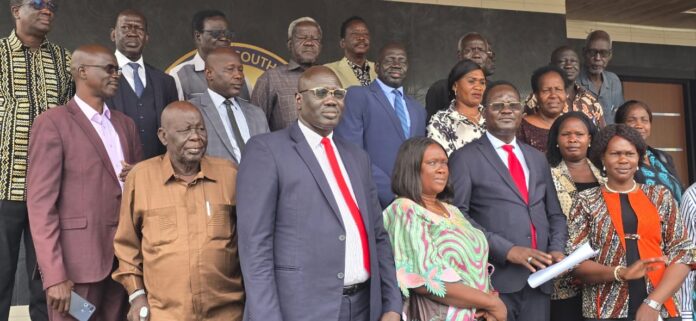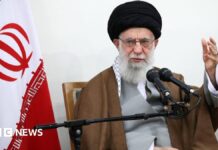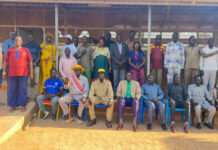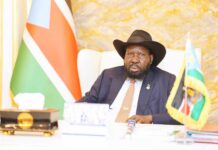Members of Parliament have strongly condemned the recent classification of 16 Nuer counties as either “hostile” or “friendly,” calling it irresponsible, reckless, and dangerous — not only to the Nuer community but to the unity and stability of South Sudan as a whole.
Lawmakers from the ruling Sudan People’s Liberation Movement (SPLM) said such labeling undermines national cohesion and is contrary to the spirit of reconciliation and unity promoted by the government.
The controversy erupted on April 26, when Minister of Cabinet Affairs, Dr. Martin Elia Lomuro, during a press conference, labeled nine Nuer counties as “hostile” to the government, while identifying seven others as “friendly.”
The remarks sparked widespread condemnation, especially on social media, where citizens described the minister’s comments as inflammatory and divisive.
In response, Nuer SPLM Members of Parliament issued a strong statement, rejecting the classification.
“Such misleading categorizations are not only irresponsible and reckless, but they also pose a serious threat to national unity,” the MPs said.
“The ongoing conflict in South Sudan has never been between the Nuer community and the government, as implied by Dr. Lomuro. Conflicts are widespread across the country — including in his own constituency of Lainya County, where hundreds have recently been killed and thousands displaced.”
The MPs emphasized the historic contribution of Nuer leaders during the liberation struggle, noting that their legacy cannot be reduced to simplistic labels such as “hostile” or “friendly.”
They further highlighted the critical role played by Nuer SPLM MPs in peacebuilding efforts, particularly during the crisis, by engaging youth leaders — including the White Army — and assisting in the rescue and transportation of South Sudan People’s Defence Forces (SSPDF) personnel from Upper Nile and Jonglei to Juba.
“As SPLM leadership in conflict-affected areas, we have been actively engaged in peace initiatives,” the statement added. “We call on all leaders to exercise restraint in their public remarks, and to avoid rhetoric that could inflame tensions or undermine national unity.”
The MPs concluded by urging the government to foster a more inclusive approach that recognizes all communities as equal partners in peace and nation-building.





